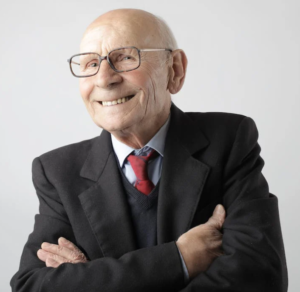
Simon Jordan Net Worth: Simon Jordan is considered one of the wealthiest individuals in the United Kingdom with an estimated net worth of approximately $100 million. His primary source of income stems from his successful private businesses.
Despite his considerable wealth, Jordan faced financial challenges in the past. In 2012, he openly admitted to “blowing” his £75 million fortune, with a significant portion lost due to his involvement with Crystal Palace.
POPULAR: Best Stocks to Buy for Building Long-Term Wealth
Simon Jordan Net Worth – An Introduction
Simon Jordan, a prominent English businessman, has established his wealth through various ventures.
His success began in the mobile phone industry, where he made a significant fortune.
In 2000, he took ownership of Crystal Palace Football Club, serving as its chairman until the club faced financial difficulties and went into administration in 2010.
Alongside his involvement in football, Jordan co-founded Octane, a renowned car magazine, in 2002 and later sold his 50% shareholding in 2006.
Adding to his diverse portfolio, he ventured into the hospitality industry by opening Club Bar and Dining on Warwick Street in London in 2006.
Subsequently, in 2010, Jordan sold the restaurant to the Ottolenghi Group, who rebranded it as Nopi.
Simon Jordan is active on Twitter, currently boasting 309k followers as of July 2023.
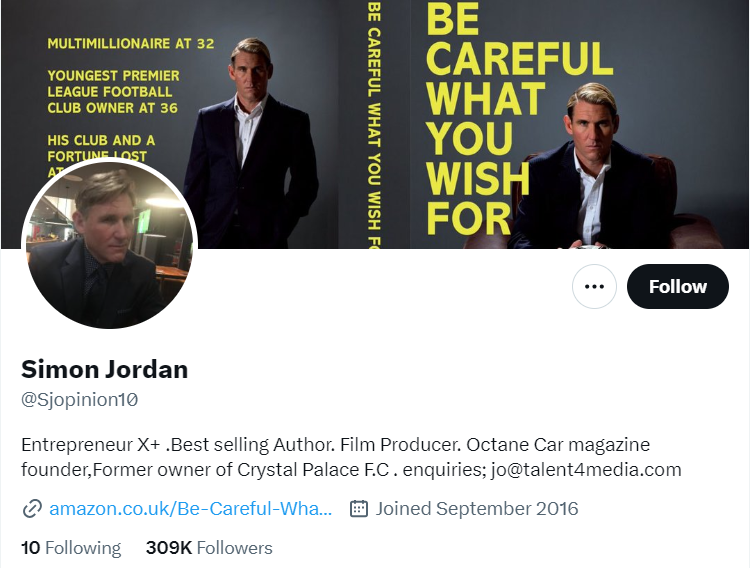
POPULAR: Dion Dublin Net Worth 2023: What Is Dion Dublin’s Net Worth?
Early Life
Simon Jordan was born on September 24, 1967, in Thornton, United Kingdom.
Despite showing promise as a young footballer, having signed schoolboy forms with Chelsea and Crystal Palace, Jordan admitted that his lack of interest and dedication prevented him from pursuing a professional career.
His father, Peter Jordan, had a connection to Crystal Palace F.C., although he never played for the first team.
Mobile Phone Business
In the late 1980s or early 1990s, a friend named James Wright invited Jordan to join him in a mobile phone business called Wright Connections.
The venture involved selling phones through advertisements in Loot and Exchange and Mart.
However, the business did not achieve significant success and underwent a name change to Corporate Cellular Ltd (CCL) during Jordan’s brief tenure in the early 1990s.
Undeterred, Jordan teamed up with Andrew Briggs in 1994 to establish their own mobile phone retail company, the Pocket Phone Shop.
Growth and Sale of Pocket Phone Shop
Starting with a modest investment of £30,000 and a 3,500 sq ft unit in Slough, the Pocket Phone Shop business thrived after securing an agreement with service provider Astec.
By 2000, the Pocket Phone Shop boasted an impressive presence with 208 outlets nationwide and a workforce of 1,100 employees.
Projections for the 1999/2000 financial year estimated a turnover of £102 million, positioning the company as a significant competitor to industry leader The Carphone Warehouse.
Notably, both Jordan and Briggs had previously worked for The Carphone Warehouse before venturing out on their own.
During its prime, the Pocket Phone Shop enlisted the services of popular television personality Ulrika Jonsson to promote the opening of new stores.
However, their relationship turned sour when Jordan took legal action against Jonsson, claiming she had not fulfilled her promotional obligations. The outcome of this lawsuit remains unknown.
Following their successful stint at the Pocket Phone Shop, Simon Jordan and Andrew Briggs sold the company to One2One in 2000 for a reported sum of around £80 million.
This paved the way for his future ventures and ownership of Crystal Palace Football Club.
Crystal Palace Football Club
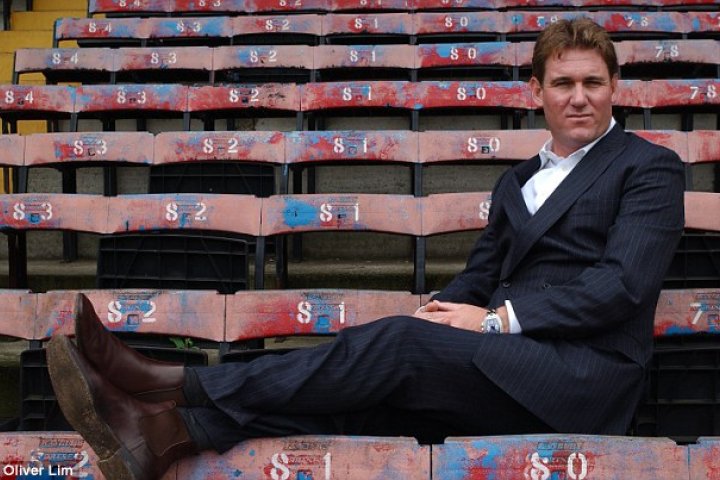
In the same year of the sale of Pocket Phone Shop, Crystal Palace Football Club, a club on the brink of extinction, was purchased by Singapore financier Jerry Lim in July 2000.
Lim swiftly sold the club to Jordan, who wasted no time in appointing himself as chairman. At the age of 32, Jordan became the youngest chairman of a Football League club.
Being a lifelong fan of Crystal Palace, Jordan’s passion for the club was evident.
He expressed his belief in the club’s potential, stating, “I have been prepared to put my money into something I truly believe in, and my first job is to turn the fortunes of this club around.”
Determined to achieve success, Jordan made a bold promise that Crystal Palace would be promoted to the Premier League within five years. Remarkably, the team accomplished this feat in just four years.
Although Jordan owned the club, he did not have ownership of the stadium, as it belonged to former chairman Ron Noades, who had stepped down in 1998.
Despite the challenges, Jordan’s leadership and investments helped stabilise the club and improve its performance on the field.
Frustrations and Plans to Sell Crystal Palace
In July 2008, Jordan shocked fans by announcing his plans to sell Crystal Palace and distance himself from football altogether.
He cited disillusionment with the sport, particularly following a controversial decision by a Football Association tribunal regarding the transfer of John Bostock to Tottenham Hotspur.
Frustrated with the outcome, Jordan criticized the tribunal, labelling them as a “panel of halfwits.” The tribunal awarded Palace a mere £700,000 for Bostock, significantly less than the club’s valuation of £5 million.
Despite Jordan’s intention to sell, no potential buyers emerged, plunging the club into deep financial trouble.
Rumours circulated about Jordan’s personal financial difficulties, and the club faced cash flow problems, leading to wage payment issues in late 2009.
The dire financial situation eventually led to Crystal Palace going into administration on January 26, 2010, effectively marking the end of Jordan’s ownership.
Nonetheless, Simon Jordan’s contribution to the club’s promotion to the Premier League remains a noteworthy chapter in Crystal Palace’s history.
POPULAR: Kaleb Cooper Net Worth: What is Kaleb Cooper’s Net Worth?
Crystal Palace Managers

During Simon Jordan’s ownership of Crystal Palace, he gained a reputation as a “manager-killer” due to his frequent changes of manager.
In the early years of his ownership, between 2000 and 2003, five managers departed from the club: Steve Coppell, Alan Smith, Steve Bruce, Trevor Francis, and Steve Kember.
Only Coppell and Bruce left of their own accord, with Coppell’s departure being a result of a personality clash and Bruce’s resignation leading to a High Court case.
In December 2003, Iain Dowie was appointed as the manager, and under his guidance, the club experienced a remarkable rise.
Crystal Palace climbed up the table and won promotion in May 2004, defeating West Ham United in the play-off final at Cardiff’s Millennium Stadium.
This achievement fulfilled Jordan’s promise of securing promotion within five years.
However, their stay in the Premier League was short-lived, as they were narrowly relegated in 2005.
Ian Dowie Departure
In May 2006, Dowie left the club by mutual consent after accepting that he and Jordan had differences.
However, shortly afterwards, Dowie joined Charlton Athletic as their new manager.
This prompted Jordan to take legal action against him, claiming that Dowie had lied about his reasons for leaving the club.
Peter Taylor, a former Palace player, was appointed as the manager in June 2006 but was sacked just 16 months later in October 2007.
Jordan expressed his desire for Taylor to be remembered as a good player for Palace rather than a poor manager.
Neil Warnock, a close friend of Jordan’s, was unveiled as the new manager in October 2007.
Under Warnock’s leadership, the club enjoyed a successful run that saw them move from the relegation zone to the play-offs in the 2007-08 season.
However, their relationship soured when Warnock left the club to join Queens Park Rangers after Crystal Palace entered administration.
Jordan also became embroiled in a legal battle with Iain Dowie, which he ultimately won in the High Court.
The court ruled that Dowie had lied during his negotiations to leave Crystal Palace. However, Dowie was granted the right to appeal, and the case was eventually settled out of court in April 2008.
Selhurst Park Stadium
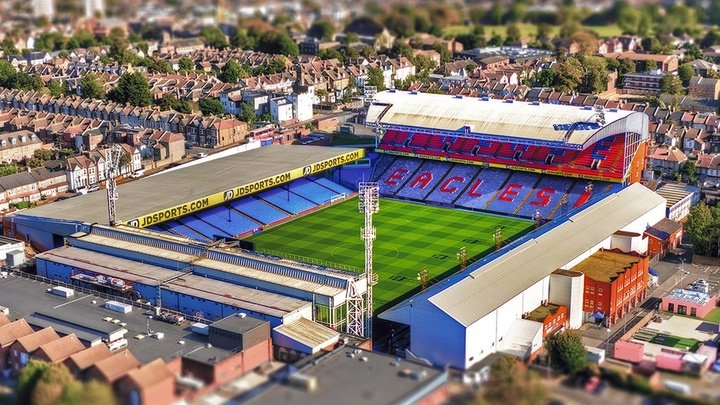
In October 2006, Jordan claimed to have purchased the freehold of Selhurst Park, the club’s stadium, from Ron Noades for £12 million.
However, it was later revealed that the freehold was owned by Selhurst Park Limited, a company in which Jordan’s ownership was not clearly defined.
The ownership situation of the stadium became complex, with various parties involved.
Ultimately, Selhurst Park Limited went into administration separately from Crystal Palace Football Club’s administration.
The stadium was eventually purchased by the CPFC 2010 consortium, led by Steve Parish, along with the consortium’s acquisition of the club itself.
Jordan later agreed to a 25-year lease for Selhurst Park.
Simon Jordan’s ownership of Crystal Palace was marked by managerial changes, legal battles, and complex ownership issues.
Despite the challenges, his passion for the club and his efforts to secure its future remain significant aspects of his tenure.
Columnist for ‘The Observer’
Simon Jordan ventured into the realm of sports journalism as a columnist for The Observer newspaper during the 2005-06 season.
However, his bold and outspoken opinions landed him in trouble when he wrote a column suggesting that football agents should be “neutered.”
This led to the Football Association charging him with bringing the game into disrepute. The case was heard on December 7, 2005, and Jordan was found guilty of improper conduct.
As a result, Simon Jordan received a suspended fine of £10,000.
Undeterred, Jordan, supported by fellow journalists and media advisor Max Clifford, expressed his intention to appeal the decision, stating, “I didn’t start this fight, but it’s not something I’m going to walk away from.”
His appeal took place on April 10, but it was rejected by a three-member panel with a two-to-one vote against him.
In his column for The Observer on March 16, Jordan mentioned that he and his advisors were considering taking the matter to court, not as a petty point of principle but to challenge the overall fairness of the process.
FA Inconsistencies
Through his column, Simon Jordan shed light on the inconsistencies within the Football Association’s disciplinary panel.
He pointed out that the same panel had decided not to take disciplinary action against Paul Jewell, the manager of Wigan Athletic, who had made comments similar to Jordan’s.
Jordan criticised the compliance process, describing it as “based on mood” and lacking consistency.
He noted, “There’s no frame of reference, no consistency – and, yes, it’s personal. It amounts to me not being able to say a referee is incompetent while others can, using the same language.”
During the appeal process, the impact of these events seemed to take a toll on Jordan.
Desire to Step Back as Chairman
The News of the World newspaper reported on February 26, 2006, that Jordan was tired of being chairman and wanted to return to being a regular fan.
However, in his column for The Observer on March 5, 2006, Jordan clarified that he had been misquoted.
He restated his previous sentiment from eight months earlier, expressing his desire to eventually step back from his role as chairman and return to the stands.
He emphasised that he would not sell the club until he had secured a solid legacy, including Premiership football and a new ground.
Subsequently, Simon Jordan ceased writing for The Observer after the 2006-07 season. However, he resumed his writing career with his own column titled “Simon Jordan’s Big Opinion” in The Sun from August 2019 until November 2020.
Simon Jordan on TV and Radio
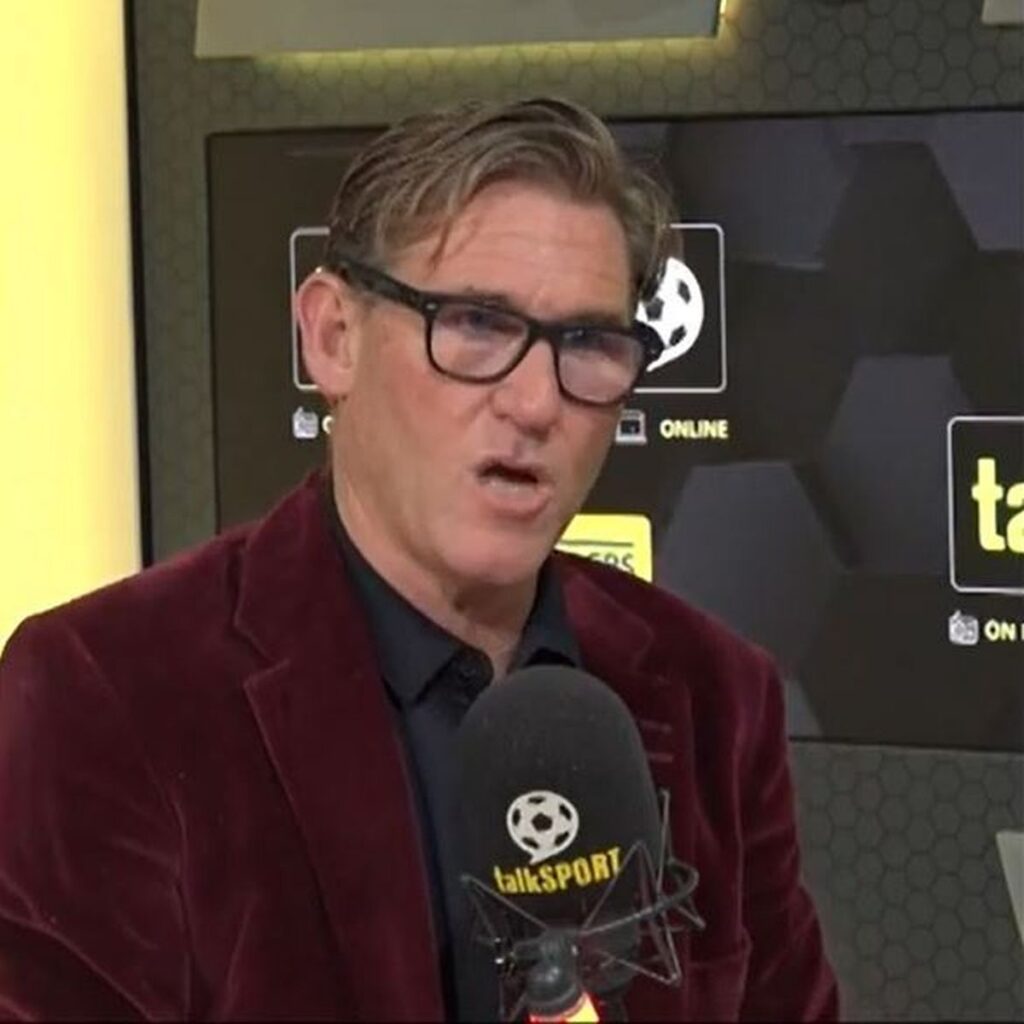
Simon Jordan expanded his presence in the media through television and radio appearances.
In early 2007, he appeared on the ITV program “Fortune: Million Pound Giveaway” alongside other millionaires, including Jacqueline Gold, Duncan Bannatyne, Kanya King, and Jeffrey Archer.
This marked his first major television appearance outside of football-related programs.
He also made an appearance on BBC’s “Question Time” in May 2019, showcasing his versatility as a commentator.
Jordan developed a relationship with leading sports broadcaster TalkSPORT, where he became a regular guest on shows hosted by Danny Kelly.
His contributions were well-received, leading to his nomination for Sports Pundit of the Year in 2019.
Due to his success, he joined Jim White on one of TalkSPORT’s flagship shows in 2020, further solidifying his presence in the radio industry.
Beyond his television and radio ventures, Simon Jordan delved into film production.
In 2006, he played a part in funding and executive producing the film “Sweeney Todd,” featuring notable actors such as Ray Winstone and Tom Hardy.
Two years later, he produced the film adaptation of the play “Telstar,” which revolved around the life of record producer Joe Meek.
The film, which starred Kevin Spacey, James Corden, and JJ Feild, received a reasonable reception from critics.
It was financed solely by Jordan and saw a release on 45 screens in the UK, with distribution in 32 countries.
Simon Jordan’s involvement in various media platforms demonstrates his diverse interests and ability to engage audiences beyond the football realm.
Autobiography
In 2012, Simon Jordan released his autobiography titled “Be Careful What You Wish For,” offering an insightful account of his life.
The book delves into his achievements in the cellular phone industry but primarily focuses on his tenure as the youngest-ever owner of a professional football club during his chairmanship of Crystal Palace Football Club.
“Be Careful What You Wish For” garnered both critical acclaim and commercial success.
Published by Random House, the autobiography received an award at The British Sport Books Awards and was also a finalist in the prestigious William Hill Sports Awards.
Jordan’s book resonated with readers, providing a fascinating glimpse into his experiences and achievements in the world of football ownership.
Family Life
Simon Jordan is currently in a relationship with Michelle Dewberry, a businesswoman and broadcaster.
In July 2020, the couple welcomed a baby boy, adding to their family.
Jordan has split his time between Marbella and London.
In the past, Jordan was involved with Meg Mathews, the former wife of Oasis guitarist Noel Gallagher.
Their relationship began in July 2005, and in January 2006, it was reported that Jordan had gifted Mathews a luxurious Christmas present—a Porsche worth £100,000, complete with a personalized number plate.
However, their relationship came to an end, with Mathews being the one to initiate the breakup.
Jordan addressed the matter in his Observer column, expressing his disappointment with the News of the World for belittling someone who had been significant in his life for the past nine months.
Jordan has also faced personal challenges in terms of harassment. In October 2006, a woman named Tara Stout was found guilty of harassing Jordan, resulting in the issuance of a restraining order.
Additionally, Jordan has a daughter named Cameron with his ex-partner Suzi Walker. Cameron was born in January 2008, and she remains an important part of Jordan’s life.
On 21 March 2018, Jordan experienced a harrowing incident when he was robbed at gunpoint in Croydon, South London, resulting in losing his £100,000 watch.
Recovery Journey After Prostate Cancer Surgery
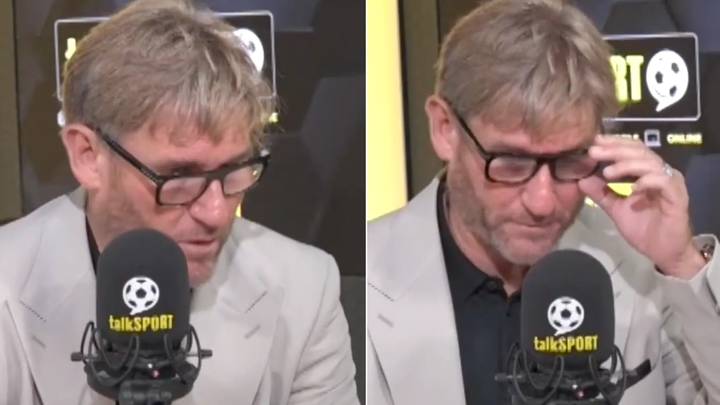
In August 2023, Simon Jordan disclosed that he was in the process of recovering from a significant surgical procedure related to prostate cancer.
Speaking candidly on talkSPORT about his health journey, Jordan stated, “I am presently in the process of recuperating from cancer. The surgery I underwent was rather substantial.”
Sharing his experience and advice, he took the opportunity live on radio to encourage men to undergo testing for prostate cancer.
Reflecting on his personal encounter with the disease, Jordan emphasised, “Despite the absence of any prostate cancer symptoms or indications of potential issues, I decided to pursue testing after someone very close to me faced their own challenges. I opted for a straightforward blood test, a step that men of a certain age, starting from 30 years and above, should seriously consider.”
Jordan underscored the critical importance of vigilance regarding prostate health, remarking, “Had I not proceeded with the surgical intervention, my current state would not be possible. There exists a pressing concern in society concerning the lack of awareness surrounding this matter. The consequences can be dire, leading to unnecessary loss of lives. It is an entirely preventable scenario if men take the matter seriously.”
Simon Jordan Net Worth Summary
Simon Jordan has accumulated an estimated net worth of approximately $100 million.
Jordan’s contributions to the business and football worlds, as well as his media presence, have solidified his place as a prominent figure in the United Kingdom.
He is now arguably the most likeable pundit on radio, with his own unique style of punditry on talkSPORT proving extremely popular with audiences.
POPULAR: Penny Mordaunt Net Worth 2023 – What Is Penny Mordaunt’s Net Worth?
